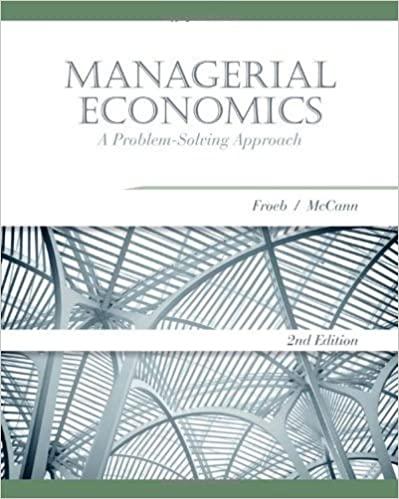Question
WHAT IS YOUR OPINION ABOUT THIS NUMBER 1 AND 2 POST. PLEASE EXPLAIN WHAT IS THOUGH ABOUT IT PLEASE COMMENT EACH OF THE PROMPT. 1.
WHAT IS YOUR OPINION ABOUT THIS NUMBER 1 AND 2 POST. PLEASE EXPLAIN WHAT IS THOUGH ABOUT IT
PLEASE COMMENT EACH OF THE PROMPT.
1. Postpartum depression is something that isn't well talked about until after it happens to you. Pregnancy is such an exciting chapter of peoples lives and is normally so overwhelming with joy, that in the long run most people think that excitement and happy feeling will always be there. Don't get me wrong, it will be and it is the most amazing thing to watch your child grow up, but what isn't talked about much is the depression that can come with it. Well, unfortunately, I was one of those women who thought that I would never get it, I was over the moon excited to be a mom and I would never be upset. After the delivery of my daughter in the days to come my hormones got the best of me. They were completely out of wack and the depression sank in hard. Although I love my daughter more than anything there was just a feeling of sadness and loss of who I was as a person because instead of being Nicole, full of energy and laughter, I was just mom, tired and drained of all energy and emotion. It is because of this that I believe medication is the way to go ( at least for me). I tried exercising, self care, and me dates where I would do anything I wanted for myself to bring back who I was. None of the holistic ways that I tried personally worked for me.
It wasn't until I got on a medication that I felt hole again, and I will never be who I was before kids, but I am so proud and overjoyed about who I am with them. I found myself, and slowly came off the medication in about 8 months and it worked. After my second child, thankfully I didn't end up getting postpartum depression but if I would have, I would of done the same thing not giving it a second thought. As for my views, I think that a mother should do what is right for her and her family, and only that person will know what they want to do. I don't think they should be forced into medication if that is something they are super hesitant about and really wanting to try to overcome it on their own. What works for one person may not work for the next, but I would suggest keeping an open mind incase one thing doesn't work, you have a back up plan and don't feel helpless.
2. Postpartum Depression
Having a baby should be the happiest time in a woman's life. Postpartum depression is a mood disorder that sadly affects 10 to 15% of new mothers. Postpartum depression causes hormonal changes after giving birth which the mother's body needs to adjust to not being pregnant anymore. Which makes estrogen and progesterone drop dramatically. PPD (Postpartum Depression) symptoms are crying spells, anxiety, sadness, poor sleeping patterns, confusion, and irritability. Even suicide, which is rare, however, it does happen. This period is called "baby blues". This mood disorder is usually diagnosed months after giving birth. This is because mothers tend to be scared to disclose that they are having feelings of sadness or feelings of not wanting their newborn child, due to crying or resentment. The mother feels this is only a temporary feeling and seems to just dismiss the signs and symptoms and think eventually, it will just go away. But it doesn't.
If PPD is diagnosed at an early stage, there is interpersonal therapy (IPT) that helps women relive and explore the causes of PPD and other contributing factors. This helps women improve relationships for better support and communication which build the mother's confidence. There is also Cognitive behavioral therapy (CBT) also known as talk therapy which helps women talk about their feelings and thoughts to see what caused this depression in the first place. There are also medication treatments for women with PPD which are called antidepressants which will help stabilize mood swings and other symptoms. Medication treatment will depend on several factors. Like the severity of the condition, if the mother is breastfeeding, and what other medications the mother is on. These medications will help alleviate some symptoms but not all. The last approach would be a holistic approach which is more of a natural approach, like taking Omega-3 fatty acids pills which help reduce mood swings, also taking folic acid helps reduce mood swings especially when breastfeeding mothers tend to lose some of their nutrients. There are also herbal alternatives like St. John's wort which also helps with mood swings and depression.
There is also exercise, yoga, meditation, massage, and acupuncture. But in the end, there are many factors that have to be taken into consideration for all these holistic approaches to help with PPD. I myself suffered from PPD after giving birth at a very young age. I was put on several medications until one finally helped. I feel that now that I'm older and know my body a lot more. I would have gone with both holistic and CBT therapy first and if that didn't work then I would source to a more medical approach.
Step by Step Solution
There are 3 Steps involved in it
Step: 1

Get Instant Access to Expert-Tailored Solutions
See step-by-step solutions with expert insights and AI powered tools for academic success
Step: 2

Step: 3

Ace Your Homework with AI
Get the answers you need in no time with our AI-driven, step-by-step assistance
Get Started


